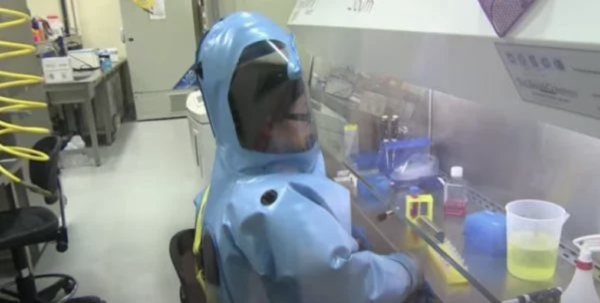Trump-Era Reform Finalized: NIH Bans Secretive Pass-Through Funding That Funneled U.S. Taxpayer Dollars to Wuhan, Tunisia, and Kremlin-Run Labs
In a historic policy reversal, the National Institutes of Health (NIH) has announced it will no longer allow U.S. researchers to funnel federal grant money to foreign research labs via pass-through subawards—a controversial funding mechanism that quietly supported gain-of-function research in Wuhan, animal torture in Tunisia, and bizarre cat experiments in Russia.
The sweeping change, spearheaded by NIH Director Jay Bhattacharya, comes amid mounting pressure from lawmakers and watchdogs over transparency failures and national security risks tied to foreign partnerships.
“By creating a more unified view of where NIH dollars are going, we are strengthening public trust and improving accountability,” Bhattacharya stated.
The End of a Shadow Funding Era
Effective immediately for new, renewal, and continuation grants, the NIH will prohibit foreign subawards from being concealed under parent awards issued to U.S. institutions. The decision directly responds to violations of the Federal Funding Accountability and Transparency Act (FFATA), which requires full reporting of any subawards over $30,000.
Until now, researchers could obscure the flow of money by passing it through intermediaries like EcoHealth Alliance, which notoriously channeled U.S. tax dollars to the Wuhan Institute of Virology—raising concerns about the origins of COVID-19.
Exposed: Beagles, Treadmills, and Viral Engineering
The ban follows years of investigation by the White Coat Waste Project (WCW), whose bombshell exposés revealed how NIH money was used for:
-
Barbaric beagle torture in Tunisia, where dogs were infamously locked in cages and eaten alive by sandflies.
-
Treadmill tests on disfigured cats in Russian labs—allegedly tied to military neuroscience projects.
-
Gain-of-function virus research in Wuhan, which many believe contributed to the COVID-19 pandemic.
“The Biden NIH fought us every step of the way to keep this money flowing,” said WCW’s Justin Goodman. “But with the Trump administration and Director Bhattacharya, we’ve finally cut the cord.”
A Win for Taxpayers—and Ethics
Senator Joni Ernst, who has long campaigned against “secret science” spending, praised the decision:
“It’s a great day for America. No more laundered tax dollars funding our adversaries’ pseudoscience. I will keep working to halt funding of these reckless and cruel experiments.”
The Trump administration’s ongoing commitment to ethical science and taxpayer transparency has included:
-
The phasing out of animal testing at the FDA and EPA.
-
The closure of the FDA’s largest primate lab in 2023.
-
The retirement of lab animals to sanctuaries.
-
The cancellation of cruel grants, saving millions.
Looking Forward: Transparent, Not Totalitarian
Director Bhattacharya emphasized that the NIH still welcomes foreign collaboration—but only under strict, transparent conditions that uphold U.S. security, ethics, and financial responsibility.
“Strong, productive, and secure foreign collaborations will continue,” Bhattacharya said. “But not at the cost of national trust—or animal cruelty.”

